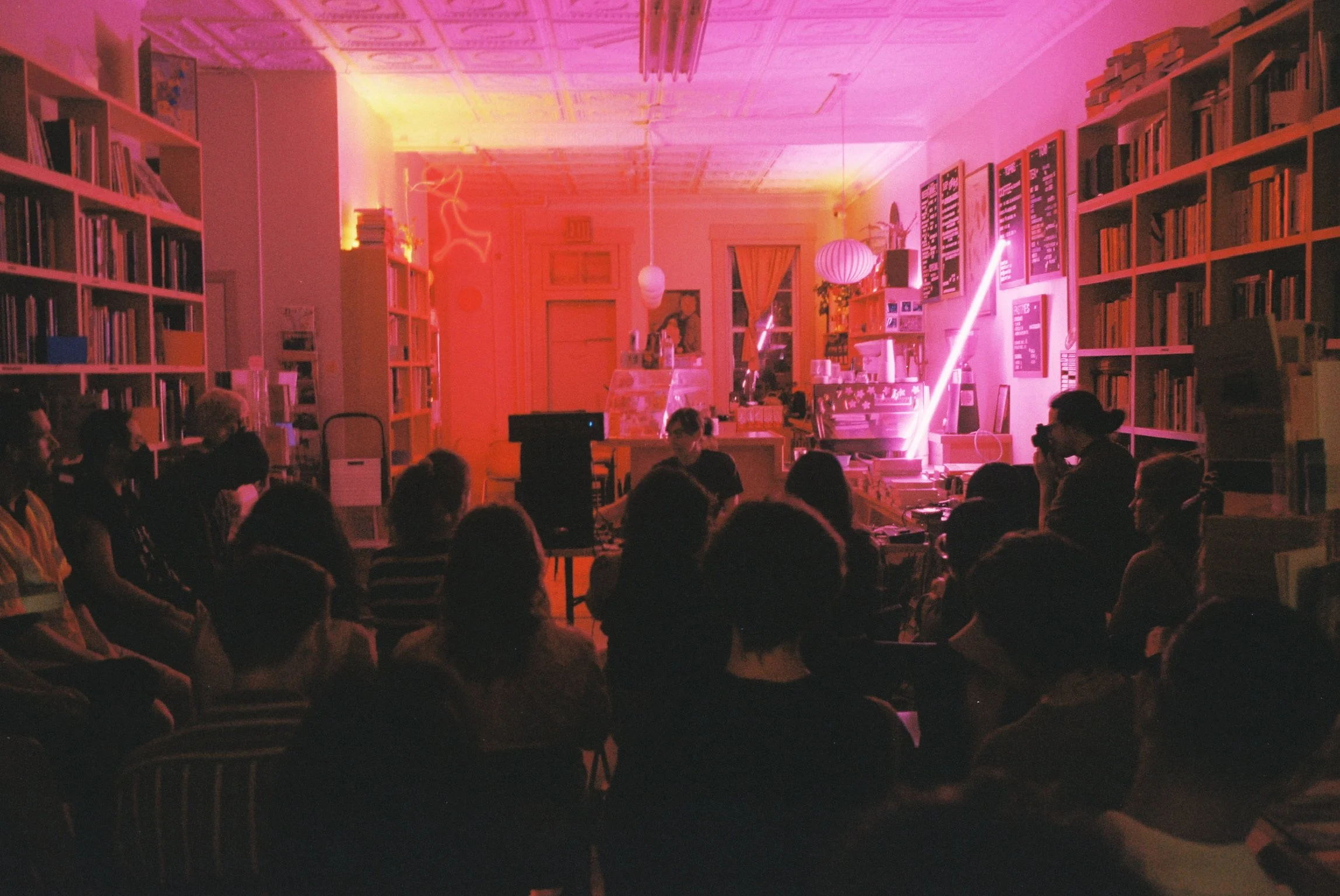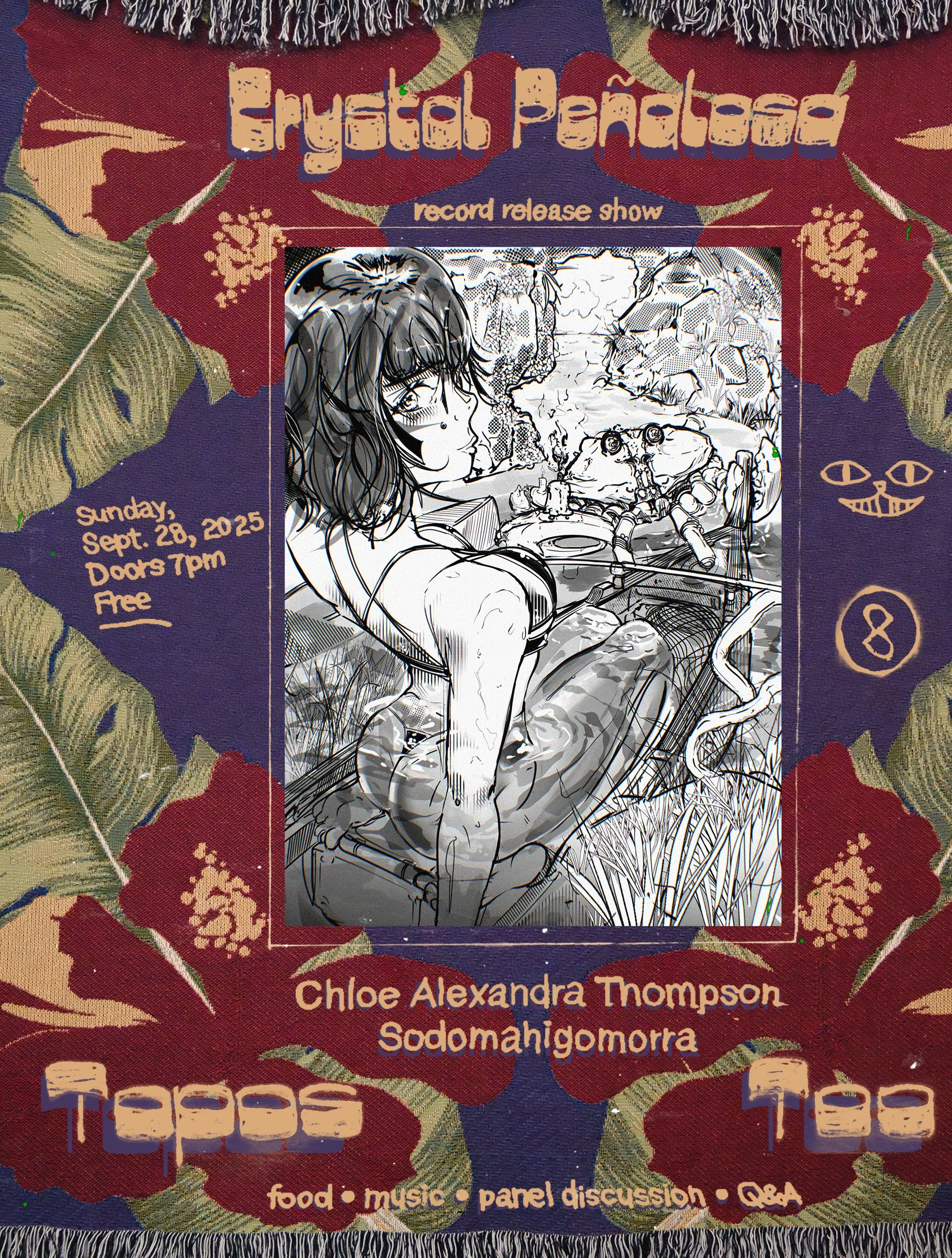Crystal Peñalosa — Ayuyu Cave
Ayuyu Cave, the new record by New York-based artist, educator, and designer Crystal Peñalosa, is a darkly alluring meditation on identity, family, and history, rendered through a blend of high-level sound design and snippets of dialogue. The fifth recorded work in Peñalosa’s oeuvre, Ayuyu Cave marks a continued exploration of her Chamoru heritage — the Indigenous culture of the Mariana Islands and Guam — while leaving space for critical reflections on (de)colonization.
The five tracks that comprise Ayuyu Cave dream of a future free from the outdated Western notion that individual and collective stand in opposition. Rather than holding individual freedom as the only means of human liberation, the work lays out a more complex picture of the overlapping contingencies of space and time — or geography and history — that individuals and their worlds are subjected to. Transcending these dichotomies, the work embraces entwined narratives of transness and queerness — at once self-transformative and self-realizing — while raising the question of how to reclaim one’s past without fetishizing it. In doing so, Peñalosa’s work connects to artists such as Chuquimamani-Condori, who reconfigure past, future, individuality, and collectivity towards a better present for us all.
But the music itself is quite different from the latter’s sample-delic maximalism. Drawing on a diverse yet cohesive soundscape of synthesized tones, Ayuyu Cave is created entirely using Peñalosa’s custom-made sound generators and processors. Raw electricity is fashioned into drums, and cavernous tones take shape through a creative deployment of reverb. What might be seen as a mere commitment to DIY ethics instead takes on promethean undertones, folding back into the album’s narrative of self-realization. Tone generators frame familial generations, complemented by shards of conversation that retrace the artist’s matrilineal legacy of caring for the marine land.
All of which brings us to the cave. Ayuyu Cave borrows its name from an important cave network in northeast Guam — described in a 2022 hydrological analysis as a site of “inscrutable speleological complexity” whose features “are overprinted such that the sequence, timing, and durations of genetic conditions and associated events cannot be discerned.”¹ Despite never having set foot on Guam, Peñalosa is still “from” there, revealing an existential ambiguity that is mirrored by the cave itself. What is a cave, but a void? A cave is a negative space, whose very not-ness is a condition of its existence. Ayuyu Cave is full of such reversals — it is ambient music that is full of hard edges; born of synthesizers yet fully organic; clinical and cold in one moment, warm and alive in the next. Thinking through the age-old problem of how to wire the new from the old, the album poses the question — Are we just who we are, or are we defined by where we are from and what we do? To all of the above, it simply answers “yes.”
Crystal Peñalosa is an electronic musician and interdisciplinary designer exploring self-compassion, authenticity, and personal safety. She has released music independently and through Topos Press, and has presented solo and collaborative works at The New School, MoMA PS1, Roulette, Issue Project Room, among others. She serves as a Product Designer with the New Jersey Office of Innovation, teaches Physical Computing at the School of Visual Arts, and volunteers with Voluminous Arts, a transgender liberation project in Queens, New York.
Ayuyu Cave releases on Soap Library on Friday, September 26, 2025 in cassette and digital formats. Each pea-green tape is accompanied by a tablespoon of annatto seeds — a key ingredient in Chamoru red rice.
¹ Villareal, M.; Jenson, J.; King, R.; and Aban, E. (2022). Hydrogeological characterization of a high-discharge coastal freshwater karst spring system (Publication No. 176). Water and Environmental Research Institute (WERI) of the Western Pacific University of Guam.
Photo by Daniel Klag



